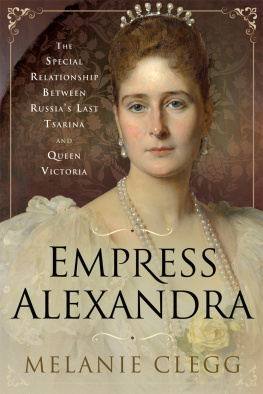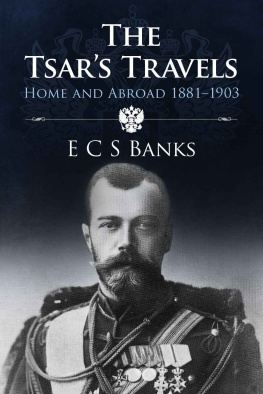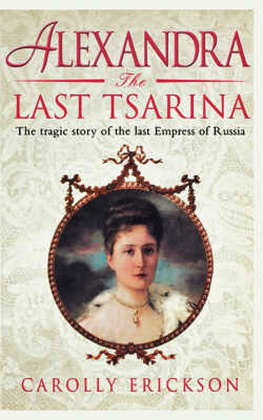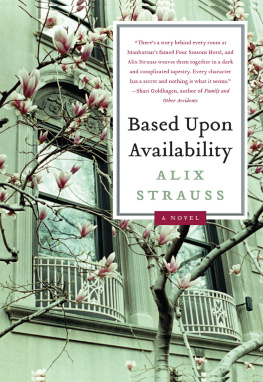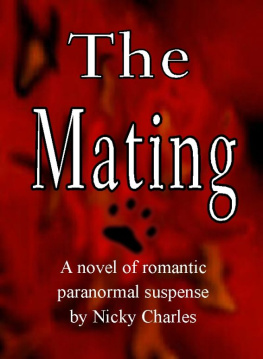Virginia Rounding - Alix and Nicky: The Passion of the Last Tsar and Tsarina
Here you can read online Virginia Rounding - Alix and Nicky: The Passion of the Last Tsar and Tsarina full text of the book (entire story) in english for free. Download pdf and epub, get meaning, cover and reviews about this ebook. year: 2012, publisher: St. Martins Press, genre: Detective and thriller. Description of the work, (preface) as well as reviews are available. Best literature library LitArk.com created for fans of good reading and offers a wide selection of genres:
Romance novel
Science fiction
Adventure
Detective
Science
History
Home and family
Prose
Art
Politics
Computer
Non-fiction
Religion
Business
Children
Humor
Choose a favorite category and find really read worthwhile books. Enjoy immersion in the world of imagination, feel the emotions of the characters or learn something new for yourself, make an fascinating discovery.

- Book:Alix and Nicky: The Passion of the Last Tsar and Tsarina
- Author:
- Publisher:St. Martins Press
- Genre:
- Year:2012
- Rating:3 / 5
- Favourites:Add to favourites
- Your mark:
- 60
- 1
- 2
- 3
- 4
- 5
Alix and Nicky: The Passion of the Last Tsar and Tsarina: summary, description and annotation
We offer to read an annotation, description, summary or preface (depends on what the author of the book "Alix and Nicky: The Passion of the Last Tsar and Tsarina" wrote himself). If you haven't found the necessary information about the book — write in the comments, we will try to find it.
Alix and Nicky: The Passion of the Last Tsar and Tsarina — read online for free the complete book (whole text) full work
Below is the text of the book, divided by pages. System saving the place of the last page read, allows you to conveniently read the book "Alix and Nicky: The Passion of the Last Tsar and Tsarina" online for free, without having to search again every time where you left off. Put a bookmark, and you can go to the page where you finished reading at any time.
Font size:
Interval:
Bookmark:
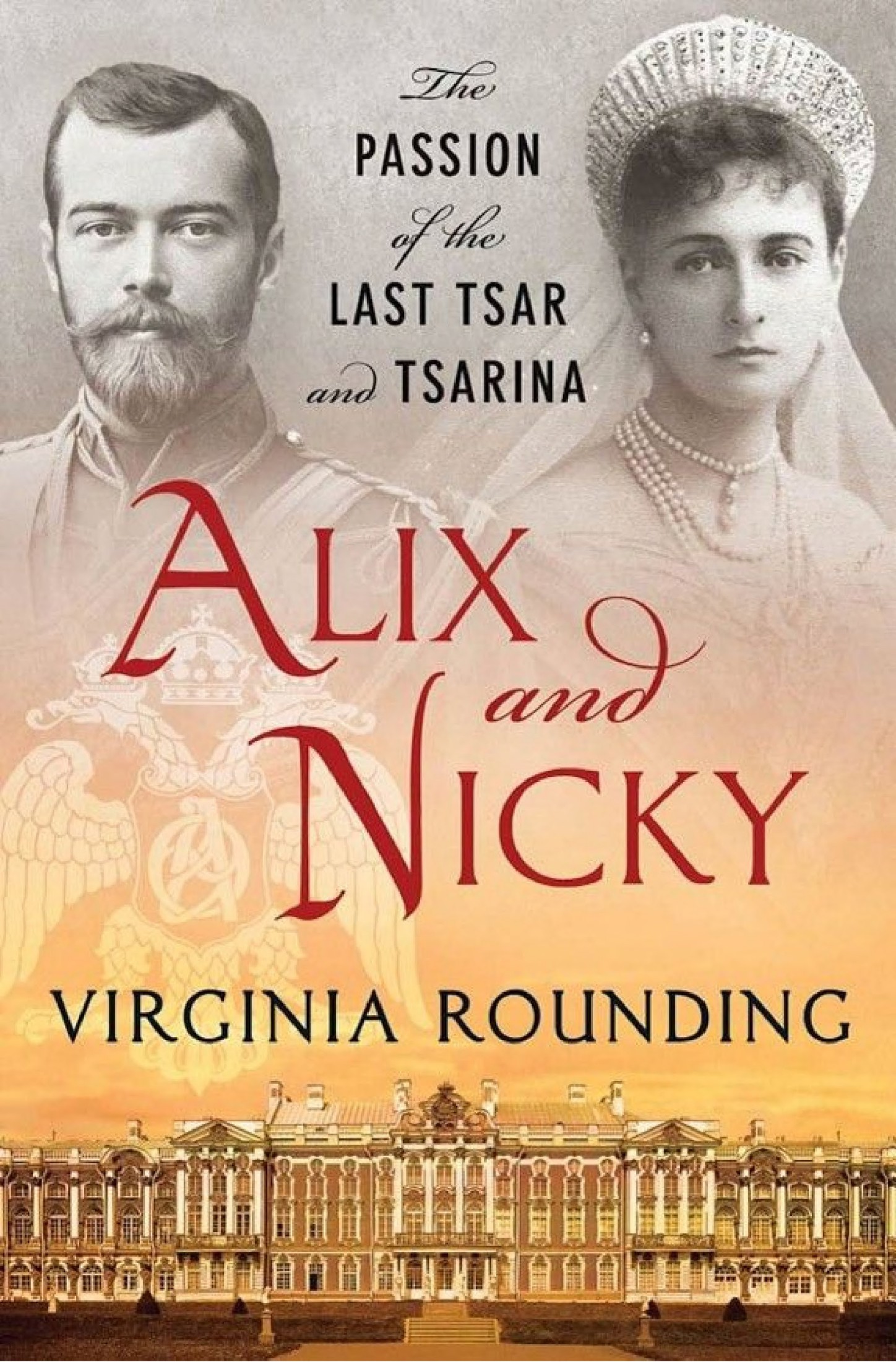

The author and publisher have provided this e-book to you for your personal use only. You may not make this e-book publicly available in any way. Copyright infringement is against the law. If you believe the copy of this e-book you are reading infringes on the authors copyright, please notify the publisher at: us.macmillanusa.com/piracy.
For Shir Aloni Yaari
CONTENTS
1:
2:
3:
4:
5:
6:
7:
8:
9:
10:
11:
12:
Everyone, I suppose, has shadows which pass before them at times like ships that pass in the night. To me one of the darkest of these shadows is that of the late Emperor of Russia and those who belonged to him. The sunbeams that light them up are the unfailing kindness which he always showed me in times of personal or other trouble, his sunny and cheerful nature, and his unfailing courage when things seemed to be going badly.
Sir John Hanbury-Williams, Head of the British Military Mission at the Russian Army GHQ in World War I
INTRODUCTION
Most noble and sublime was your life and death, O Sovereigns; wise Nicholas and blest Alexandra, we praise you, acclaiming your piety, meekness, faith, and humility, whereby ye attained to crowns of glory in Christ our God, with your five renowned and godly children of blest fame. Martyrs decked in purple, intercede for us.
Tropar (dismissal hymn) of the Royal Martyrs
[The Russian Empire] was ruled from the top by a sovereign who had but one idea of governmentto preserve intact the absolute monarchy bequeathed to him by his fatherand who, lacking the intellect, energy or training for his job, fell back on personal favorites, whim, simple mulishness, and other devices of the empty-headed autocrat the impression of imperturbability he conveyed was in reality apathythe indifference of a mind so shallow as to be all surface.
Barbara W. Tuchman, The Guns of August, 1962
I have no hesitation in saying that I have seldom in the course of 30 years met any man so quick in the uptake, so bright in his mental perception, so sympathetic in his understanding, or one possessing a wider range of intellectual interest.
W. T. Stead, The Times, 1905
It is, generally speaking, hard to penetrate the Emperors soul. He was reserved, shut up in himself, mistrustful; knew well how to hide his feelings and, without showing it, to take everything in and forget nothing. What he thought after his abdication, observing the results of his unhappy reign, he confided to no one, not even to his diary. For all his simplicity, graciousness, capacity to charm, he was profoundly alone; the only person close to him, the only one he trusted whole-heartedly, was the Empress, a pure and passionate woman, boundlessly devoted to him, but thanks to her nature, his real evil genius.
Boris Maklakov, On the Fall of Tsardom, SEER, 1939
* * *
T HE FOUR QUOTATIONS above, chosen more or less at random, illustrate only a very small part of the range of opinions about the last Tsar of All the Russias, Nicholas II, and his wife, Alexandra Fyodorovna, and show something of the contradictory nature of many of those opinionsfrom saint to evil genius where Alexandra is concerned, from dim-witted dunce to agile and well-informed thinker in the case of her husband. So which of these opinions, if any, is right? This book is an attempt to answer that questionand I choose the indefinite article advisedly. So many books have already been written about the life, love, and death of Nicholas and Alexandra that one might reasonably wonder what else there is to say. Indeed, during the course of researching and writing this book, I have often been asked that very thing. Conversely, I have also been told what I ought to say, as many people have very strong opinions about the last Romanovs, and their own clear ideas on what should be included in a book about them. It is only necessary to read some of the contributions to the discussion forum at the popular and comprehensive Web site The Alexander Palace Time Machine (http://www.alexanderpalace.org/palace/) to realize that, in engaging with Nicky, Alix, and their family, one is entering a minefield.
* * *
T HE ANALOGY THAT comes most readily to mind when writing a new book about such apparently well-known yet still controversial figures is that of curating an exhibition of some already famous artist. Just as the curator endeavors to present a different view, through judicious, sometimes idiosyncratic, selection, juxtaposition, ordering, and even omission, so the biographer must select, consider, compare, and above all look with a fresh eye at what is already known as well as seek out the previously unknown. In so doing, curator and biographer may respectively light upon something that previous exhibitions and books have missed, some detail or a new way of seeing that may alter earlier perceptions. Through engaging closely with a number of texts, particularly diaries and lettersand sometimes looking at what is unsaid as much as what is saidI have aspired to come as close as possible to penetrating the souls of these two complex characters, while presenting the story of their passion (taken in both senses, of love and of suffering) in a way that I hope will pique the interest of both the Romanov expert and the general reader. At the same timeand again bearing in mind the curating analogymine is only one way of seeing, of arranging the material to allow the characters to appear, of telling the same story differently. It may be almost as impossible to find the historical Nicholas and Alexandra as to find the historical Jesus, so much being dependent on the attitudes and beliefs of witnesses. There may be as many Nickys and Alixes as there are theories about them, their images distorted by the parts they are assigned in other peoples mythologies. During their lifetime they were constantly surrounded by gossip, and sometimes it may seem that it has not yet died down. They were in addition extremely private people, only really known to one anotherand maybe too shy even for such private knowledge to be complete. Nickys own account of himself, in his diary, is designed to give little away; he was always restrained, rarely given to obvious self-expression (though at times his silence speaks volumes). And, as if misleading gossip on the one hand and considerable reticence on the other did not present sufficient obstacles to knowledge, Nicholas and Alexandra have now vanished even further from our sight, into the reflective surface of an iconwhere the image as instrument of devotion is meant always to point beyond itself, to be seen through rather than stared at , the portal to a different sort of knowledge. As saintsif that is what they are, or might bethey have moved literally beyond our understanding.
A few practical points: As Simon Dixon said in his book on Catherine the Great, There is no universally satisfactory system of transliteration for the Cyrillic alphabet. My aim has been to keep it as simple as possible, and therefore to use the most familiar and easily recognizable form for proper names. In particular, where Nicky and Alix themselves use certain versions of peoples names (for they wrote to one another in English), they are the ones I have used, too (unless their versions are overly idiosyncratic). I refer to the Tsar as Nicholas in order to distinguish him from other Nikolais, and as Nicky despite the fact that the actual spelling used by his family was Niki. I usually use x rather than ks in words such as Alexandra, Alexei, and Alexandrovich. For the sake of simplicity I have decided to dispense, wherever possible, with the patronymicso, Ivan Goremykin, for instance, rather than Ivan Logginovich Goremykin. The main exception to this is in relation to the imperial family, the various Grand Dukes and Duchesses generally being referred to by first name and patronymic. I have also taken the decision, on the whole, to refer to varying degrees of cousin (there being many such within the imperial family) simply as cousin. Otherwise it could become unbearably complicated, and the different terminology used in English and Russian could also create confusion: For instance, Nicholass cousin Grand Duke Alexandertechnically, his first cousin once removedmentions in his memoirs that this relationship is known in Russian as second uncle. (This may explain why Grand Duke Nikolai Nikolaevich, Commander-in-Chief during the first months of World War I and another of Nicholass first cousins once removed, is sometimes mistakenly referred to as his uncle.)
Font size:
Interval:
Bookmark:
Similar books «Alix and Nicky: The Passion of the Last Tsar and Tsarina»
Look at similar books to Alix and Nicky: The Passion of the Last Tsar and Tsarina. We have selected literature similar in name and meaning in the hope of providing readers with more options to find new, interesting, not yet read works.
Discussion, reviews of the book Alix and Nicky: The Passion of the Last Tsar and Tsarina and just readers' own opinions. Leave your comments, write what you think about the work, its meaning or the main characters. Specify what exactly you liked and what you didn't like, and why you think so.







